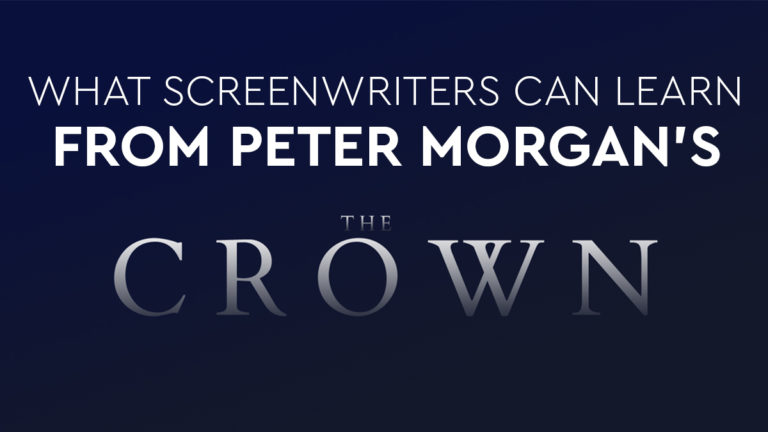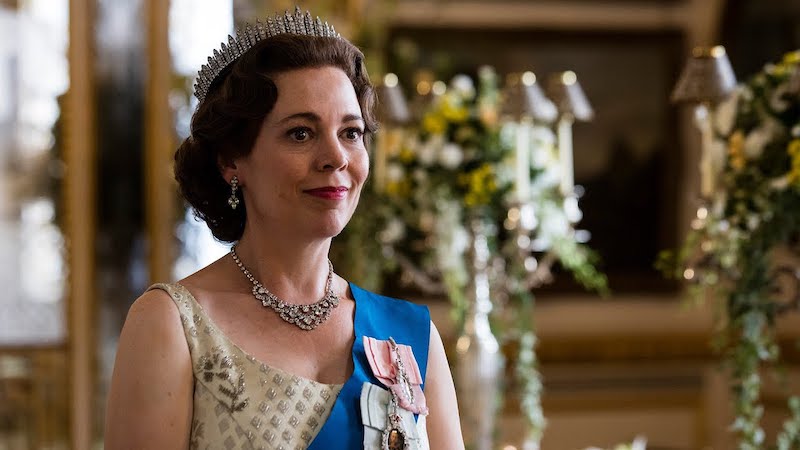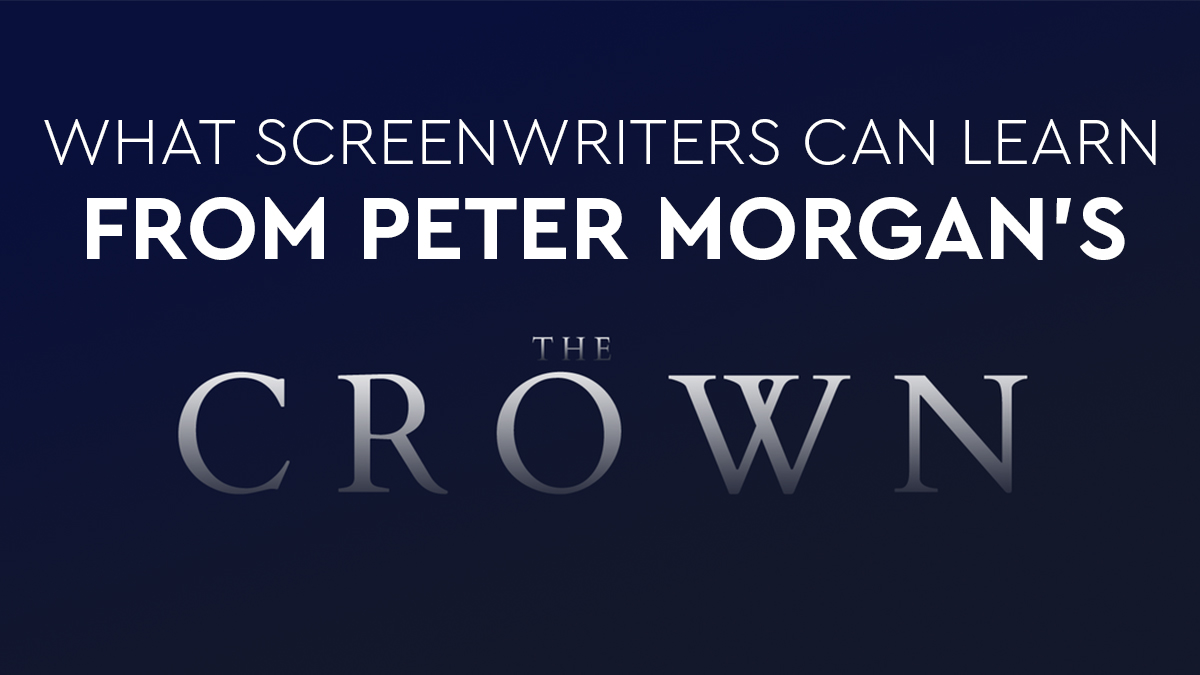What Screenwriters Can Learn From Peter Morgan's THE CROWN

What can screenwriters learn from the critically-acclaimed hit Netflix series, The Crown, and its creator, Peter Morgan?
The Crown is a drama series that follows the political rivalries and romance of Queen Elizabeth II's reign, as well as the events that shaped the second half of the 20th century. The series is based on real-life events, but recent episodes have also branched out to walk the fine lines between fact, fiction, and creative liberties.
Here we'll explore the screenwriting lessons that can be learned from the excellent series, as well as its creator.
5 Screenwriting Lessons You Can Learn from Peter Morgan and The Crown
1. Find the Perfect Platform for Your Story
Morgan originally conceived The Crown as a feature film. Morgan was initially known for his brilliant work on the stage as a playwright, but he then segued into film, and later, television. He's the screenwriter behind The Queen (2006), Frost/Nixon (2008), The Damned United (2009), Rush (2013), and Bohemian Rhapsody (2018).
As he was developing and researching the feature version of The Crown, he began to see the potential of the overarching story and the real-life characters had through years and years of rule.
Rather than focus on a smaller window within that story, he decided it would be better as a series.
When you're developing concepts, pay attention to the stories that you're trying to tell. And know the differences between the demands of a feature and the demands of a series.
Feature Option
Features require a smaller window of story because screenwriters only have 90-120 pages (give or take) to tell the story — and filmmakers only have 90-120 minutes (give or take) to offer a cinematic representation of the screenplay because that's the allotted run time for most releases.
So for The Crown, rather than trying to compact years of great stories into a single feature, Morgan decided to shift towards a series approach.
TV Series Option
TV series require enough story and character arcs to fill not only multiple episodes, but multiple seasons as well. So rather than focusing on a single concept, as most features do, a TV series focuses on primarily on a cast of characters and the worlds they inhabit. Why? There's more material to justify a full series.
For The Crown, Morgan saw that potential and was wise enough to make that shift.
2. True Stories Still Require Imagination from a Screenwriter
Morgan told Deadline in an interview, "Finding out what [the real-life characters of The Crown] were doing, and when, was pretty easy." He's referring to the fact that the schedules, public appearances, and official goings-on of the Royal Family are part of public record.
But he went on to say, "Working out what they thought and felt is something [where] we have to use our imaginations. And that's hopefully what an audience wants from us. To make sense of history, you sometimes have to use fiction, imagination, and acts of creativity." You can watch the interview here:
Many screenwriters struggle handling stories and characters that are based on historical facts and events. They struggle with balancing fact vs. fiction — and don't understand how to handle creative liberties.
As a screenwriter, it's your job to fill in the blanks and explore what those real-life characters may or may not have been feeling. And it is certainly your job to interpret what they may or may not have been feeling through dialogue and emotional manifestations.
If anything, it's should be considered a freedom — not a constraint. You have the freedom of interpretation. And that requires a lot of imagination. Telling a true story isn't just about great research. It's about taking that research and using your imagination to bring it to life in cathartic fashion for the audience.
3. Look for the Smaller Historical Gems Beyond the Obvious Events
In the Deadline interview, Morgan shares a very interesting part of his research process. "In advance of writing every season — each season is approximately a decade long — so I look at that decade and there are the obvious tentpole historical events, and if you don't, at least in some way, allude to them, it feels like a dishonest representation of that decade. And then there are the surprising ones. And it can often take quite a lot of time to find those."
The series handles a lot of the obvious historical events. But where it shines most is with the smaller details that many don't know about — those hidden historical gems.
When audiences watch a series or movie based on historical events and figures, yes, they want to see those tentpole historical events covered. They want to learn more about them. They want to feel like they are getting a look into what really happened — or may have happened. But they also want to be surprised. They also want to learn new things.
When you're researching your screenplay based on historical events, keep your eyes peeled for little gems that you can focus on as well.
4. Stories of Love are Universal
Whether it's between Queen Elizabeth and her beau, Prince Philip — or Princess Margaret and her many romances, especially with Captain Peter Townsend — love stories are an excellent way to help the audience relate to otherwise unrelatable historical figures.
It's easy to get lost in the history of everything when you're dealing with a historical event or figure. You focus so much on the facts and relinquish the emotion that you'd normally find in a feature film or series. You need to find ways to bring the audience in. And you accomplish that by exploring themes that are universal.
And what better universal theme than love?
- The love of a wife or husband.
- The history with a former love.
- The love you always wanted but never had.
- The love you had, and have never forgotten.
- The crush.
- The love affair.
These are all universal themes. And you can branch out, much like The Crown does, by exploring the love between a mother and daughter, father and son, etc. As well as the complications between those types of relationships.
Don't let the historical significance of your screenplay cloud the themes that every great story needs. Find any opportunity to portray those universal themes within your true story screenplays. Facts are interesting and fun to explore. Themes are what keep the audience invested and attached to the story and characters.
5. Find the Core of Your Story
"I'm not being presumptuous, I hope, when I say that 'The Crown' is a little bit like 'The Godfather.' It is essentially about a family in power and survival."
Sure, The Crown covers historical events and figures. But when you take on a historical project — or any project, based on history or not — you need to understand the core of the story.
The Crown isn't just about the Royal Family. It's about:
- What it is like to have power
- How different people handle that power
- And how others survive through that struggle with power
What's the core of your story? The core of your story is the overarching theme that audiences can relate to most. What's it really about? That's what will drive every single choice you make as the writer.
With this series, it's not just about presenting the factual details of the historical event portrayed. It's about the struggle of power and surviving through the decisions made, and the repercussions that follow.
Bonus Advice: Be Patient in Your Screenwriting Career
What did Peter Morgan do to get where he is today as a screenwriter?
"I just practiced. You will probably write a good screenplay on your eighth attempt... I'm 44 (at the time of this quote) and have been doing this for 20 years. I've been successful only in the past five. Be patient, tenacious."
Morgan is one of the most celebrated screenwriters in the world. And even he points out that it can take years to become a successful screenwriter. It takes time to hone your craft. It takes time to get to a point where your writing is ready.
Don't make resolutions and goals to be majorly successful in a year, two, three, etc. Make goals to hone your craft, learn from your mistakes, and write great scripts. That should be the goal. The rest is up to the screenwriting gods.
Write a script. Learn from any mistakes. Write another. Get better. Challenge yourself when you can to flex those screenwriting muscles.
Ken Miyamoto has worked in the film industry for nearly two decades, most notably as a studio liaison for Sony Studios and then as a script reader and story analyst for Sony Pictures.
He has many studio meetings under his belt as a produced screenwriter, meeting with the likes of Sony, Dreamworks, Universal, Disney, Warner Brothers, as well as many production and management companies. He has had a previous development deal with Lionsgate, as well as multiple writing assignments, including the produced miniseries Blackout, starring Anne Heche, Sean Patrick Flanery, Billy Zane, James Brolin, Haylie Duff, Brian Bloom, Eric La Salle, and Bruce Boxleitner, and the feature thriller Hunter’s Creed starring Duane “Dog the Bounty Hunter” Chapman, Wesley Truman Daniel, Mickey O’Sullivan, John Victor Allen, and James Errico. Follow Ken on Twitter @KenMovies
For all the latest ScreenCraft news and updates, follow us on Twitter, Facebook, and Instagram.
Tags
Get Our Screenwriting Newsletter!
Get weekly writing inspiration delivered to your inbox - including industry news, popular articles, and more!























